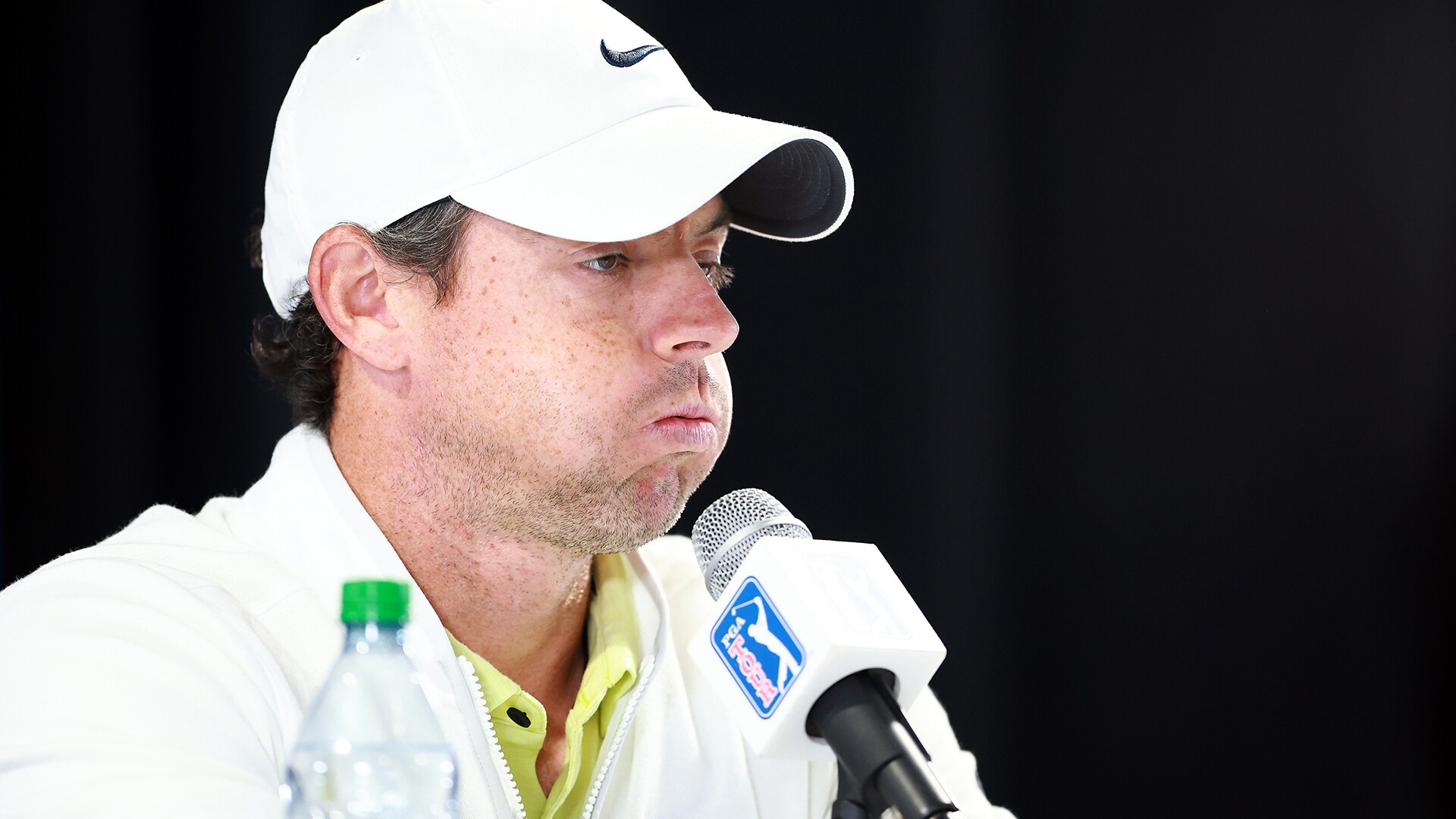Rory McIlroy: Merger is positive but can’t help feeling ‘like a sacrificial lamb’

Rory McIlroy learned about the landscape-altering PGA Tour agreement mere hours before every other player.
McIlroy said he received a text Monday night from Jimmy Dunne – an influential policy board member and a key architect of the deal – asking to speak with him by phone early Tuesday morning. They talked at 6:30 a.m., and Dunne ran McIlroy through the framework agreement – that the Tour had agreed to join forces with Saudi Arabia’s Public Investment Fund and the DP World Tour to create a new, for-profit entity.
McIlroy knew that discussions between the two warring sides had been ongoing; Tour commissioner Jay Monahan said Tuesday he’d had four in-person meetings with PIF governor Yasir Al-Rumayyan over the past seven weeks. But McIlroy didn’t have any indication that any sort of agreement was imminent.
“It was a surprise,” he said.
Dunne explained the reasoning to McIlroy this way: “Sometimes you’ve got 280 over water and just have to go for it.”
With a day to reflect, McIlroy said that he ultimately believes that having the Saudis’ deep pockets pouring money into the Tour is “good for the professional game.” He said that it unifies the sport after a divisive 18 months, and with the PIF now the exclusive investor in the new entity, it secures the Tour’s financial future.
But he also admitted to having “mixed feelings.” No player has been as loyal to the Tour as McIlroy, trotted out in front of the cameras nearly every week to offer his support for the Tour and its prospects. Along with Tiger Woods, he was hugely important in reshaping the Tour schedule that saw bigger purses and the top players getting together more often. In the locker room, at least, McIlroy was lauded for pulling double duty, marquee player and chief spokesman, but he admitted just last month that the heated rhetoric and added burden took a toll.
As McIlroy told reporters Wednesday, “It’s hard for me to not sit up here and feel like a sacrificial lamb.”
McIlroy believes that the Tour, right now, after the agreement, is in a better position than it was a few weeks ago, not least because the costly antitrust litigation has ended. And though there’s much to be figured out – how to bring the LIV players back into the fold; how to incorporate a team element into the Tour schedule; how to appease the Tour loyalists who originally turned down eye-watering sums of money from the Saudis – the ambiguity should be cleared up in the coming weeks.
“All I’ve wanted in the past year is to protect the future of the PGA Tour and protect the aspirational nature of what the PGA Tour stands for, and I hope that this does that,” McIlroy said. “Whether you like it or not, the PIF were going to keep spending money in golf. At least the PGA Tour now controls how that money is spent.
“So, if you’re thinking about one of the biggest sovereign wealth funds in the world, would you rather have them as a partner or an enemy? At the end of the day, money talks, and you’d rather have them as a partner.”
